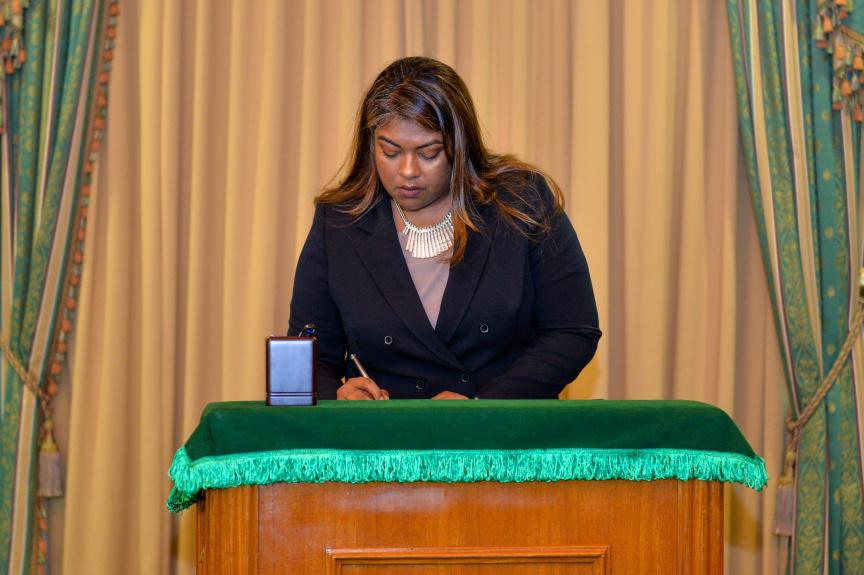
Supreme Court Justice Aisha Shujoon has been elected as the vice chair of Judicial Service Commission (JSC). The vote took place Sunday.
She replaces Justice Husnu Al-Suood, who resigned as JSC’s vice chair on November 17.
Shujoon was appointed to the Supreme Court on September 4, 2019 – becoming one of the first two female justices to be appointed to the country’s top court.
She completed her Bachelor of Laws (Honors), under the University of London External program at the Royal Institute in Colombo, Sri Lanka, and read for her Master of Laws at the University of Western, in Perth, Australia.
Prior to her appointment to the Supreme Court, Shujoon was in in private practice as associate partner at Nasheed & Co. She also served as a judge at the Civil Court; various executive and legal positions at the Ministry of Justice and Juvenile Court; and project positions at the Ministry of Gender.
She also worked extensively with civil society organizations on a number of issues, primarily with a focus on human rights and good governance.
Shujoon was elected as a member of the first Executive Committee of the Bar Council of Maldives in 2019, from which she resigned upon appointment to the Supreme Court.
She served the United Nations Subcommittee on the Prevention of Torture (SPT), as its Vice Chairperson for Jurisprudence and SPT Rapporteur, from 2011 to 2018. She was re-elected to the SPT and commenced a 4-year term in 2021, currently serving as SPT Vice Chairperson for National Preventive Mechanisms.
JSC is currently composed of:
- Parliament speaker
- A representative from the Parliament
- A representative of the President
- A Supreme Court justice
- A High Court judge
- A lower court judge
- A representative of the general public approved by Parliament
- Civil Service Commission’s President
- Attorney General
The presence of politicians in the JSC often sparks allegations of political influence in decisions.
Reforming the composition had been something former President Ibrahim Mohamed Solih promised to do during his 2018 presidential campaign, but failed to deliver.
His successor, President Dr. Mohamed Muizzu has also pledged to reform the commission’s composition and free it from political influence.












